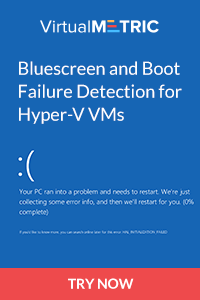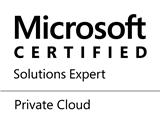Posted in
Windows Powershell,
Windows Server |
No Comment | 2,697 views | 07/01/2014 14:42
This is my format disk script for System Center Orchestrator. PoSHServer and PsExec is required for operation.
1
2
3
4
5
6
7
8
9
10
11
12
13
14
15
16
17
18
19
20
21
22
23
24
25
26
27
28
29
30
31
32
33
34
35
36
37
38
39
40
41
42
43
44
45
46
47
48
49
50
51
52
53
54
55
56
57
58
59
60
61
62
63
64
65
66
67
68
69
70
71
72
73
74
75
76
77
78
79
80
81
82
83
84
85
86
87
88
89
90
91
92
93
94
95
96
97
98
99
100
101
102
103
104
105
106
107
108
109
110
111
112
113
114
115
116
117
118
119
120
121
122
123
124
125
126
127
128
129
130
131
132
133
134
135
136
| # Get Parameters
$VMName = $PoSHQuery.VMName
$DiskDrive = $PoSHQuery.DiskDrive
$DiskIndex = $PoSHQuery.DiskIndex
if (!$VMName -or !$DiskIndex -or !$DiskDrive)
{
$ResultMessage = "A required parameter is not exist. Please check parameters."
$Result = "1"
}
else
{
# Clear Values
$MountPoint = $Null;
$DriveLetter = $Null;
if ($DiskDrive.Length -gt "3")
{
$MountPoint = $DiskDrive
}
else
{
$DriveLetter = $DiskDrive
}
if ($DriveLetter)
{
$Type = "1"
# Parameter Control
if ($DriveLetter.Length -gt "1")
{
$DriveLetter = $DriveLetter.Remove(1)
}
# Create Drive Letter Array
$DriveLetterArray = New-Object System.Collections.ArrayList
$DriveLetterArray.Clear();
$Volumes = (Get-WmiObject Win32_Volume -ComputerName $VMName)
foreach ($Volume in $Volumes)
{
$VolumeLetter = $Volume.DriveLetter
$AddArray = $DriveLetterArray.Add("$VolumeLetter")
}
# Control Drive Letter
$DriveLetterControl = $DriveLetter + ":"
if ($DriveLetterArray.Contains($DriveLetterControl) -eq $True)
{
$ResultMessage = "That drive letter is already exist in the server. Please format disk drive manually."
$Result = "1"
}
else
{
$Result = "0"
}
}
elseif ($MountPoint)
{
$Type = "2"
$TargetDrive = $MountPoint.Remove(1)
$TargetPath = $MountPoint.Split(":")[1]
$TargetSharePath = "\\" + $VMName + "\" + $TargetDrive + "$" + $TargetPath
$TestTargetPath = Test-Path $TargetSharePath
if ($TestTargetPath)
{
$ResultMessage = "That mount point is already exist. Please format disk drive manually."
$Result = "1"
}
else
{
$CreateTargetFolder = New-Item $TargetSharePath -ItemType Directory
$Result = "0"
}
}
else
{
$ResultMessage = "A required parameter is not exist. Please check parameters."
$Result = "1"
}
}
if ($Result -eq "0")
{
$Snapshot2 = (Get-WmiObject Win32_DiskDrive -ComputerName $VMName).Index
$DiskIndex = $DiskIndex.TrimStart("index;")
$Snapshot1 = $DiskIndex.Split(";")
$DiffDiskIndex = (Diff $Snapshot1 $Snapshot2).InputObject
if ($DiffDiskIndex)
{
$Value1 = "select disk $DiffDiskIndex"
$Value2 = "online disk noerr"
$Value3 = "attributes disk clear readonly"
$Value4 = "create partition primary"
$Value5 = "format fs=ntfs quick"
if ($Type -eq "1")
{
$Value6 = "assign letter=$DriveLetter"
}
if ($Type -eq "2")
{
$Value6 = "assign mount=$MountPoint"
}
$Path = "\\" + $VMName + "\C$\diskpart.txt"
Add-Content -Value $Value1 -Path $Path
Add-Content -Value $Value2 -Path $Path
Add-Content -Value $Value3 -Path $Path
Add-Content -Value $Value4 -Path $Path
Add-Content -Value $Value5 -Path $Path
Add-Content -Value $Value6 -Path $Path
$PsExecPath = "C:\Windows\System32\WindowsPowerShell\v1.0\Modules\PoSHServer\http\PsExec.exe"
$Command1 = "diskpart /s C:\diskpart.txt"
$Shell1 = $PSExecPath + " -accepteula \\" + $VMName + " " + $Command1
$FormatDisk = c md.exe /c $Shell1
Remove-Item -Path $Path
$ResultMessage = "Disk is successfully formatted."
$Result = "0"
}
else
{
$ResultMessage = "No new virtual disk detected. Please check previous steps in Orchestrator."
$Result = "1"
}
}
@"
$($ResultMessage)
"@ |
# Get Parameters
$VMName = $PoSHQuery.VMName
$DiskDrive = $PoSHQuery.DiskDrive
$DiskIndex = $PoSHQuery.DiskIndex
if (!$VMName -or !$DiskIndex -or !$DiskDrive)
{
$ResultMessage = "A required parameter is not exist. Please check parameters."
$Result = "1"
}
else
{
# Clear Values
$MountPoint = $Null;
$DriveLetter = $Null;
if ($DiskDrive.Length -gt "3")
{
$MountPoint = $DiskDrive
}
else
{
$DriveLetter = $DiskDrive
}
if ($DriveLetter)
{
$Type = "1"
# Parameter Control
if ($DriveLetter.Length -gt "1")
{
$DriveLetter = $DriveLetter.Remove(1)
}
# Create Drive Letter Array
$DriveLetterArray = New-Object System.Collections.ArrayList
$DriveLetterArray.Clear();
$Volumes = (Get-WmiObject Win32_Volume -ComputerName $VMName)
foreach ($Volume in $Volumes)
{
$VolumeLetter = $Volume.DriveLetter
$AddArray = $DriveLetterArray.Add("$VolumeLetter")
}
# Control Drive Letter
$DriveLetterControl = $DriveLetter + ":"
if ($DriveLetterArray.Contains($DriveLetterControl) -eq $True)
{
$ResultMessage = "That drive letter is already exist in the server. Please format disk drive manually."
$Result = "1"
}
else
{
$Result = "0"
}
}
elseif ($MountPoint)
{
$Type = "2"
$TargetDrive = $MountPoint.Remove(1)
$TargetPath = $MountPoint.Split(":")[1]
$TargetSharePath = "\\" + $VMName + "\" + $TargetDrive + "$" + $TargetPath
$TestTargetPath = Test-Path $TargetSharePath
if ($TestTargetPath)
{
$ResultMessage = "That mount point is already exist. Please format disk drive manually."
$Result = "1"
}
else
{
$CreateTargetFolder = New-Item $TargetSharePath -ItemType Directory
$Result = "0"
}
}
else
{
$ResultMessage = "A required parameter is not exist. Please check parameters."
$Result = "1"
}
}
if ($Result -eq "0")
{
$Snapshot2 = (Get-WmiObject Win32_DiskDrive -ComputerName $VMName).Index
$DiskIndex = $DiskIndex.TrimStart("index;")
$Snapshot1 = $DiskIndex.Split(";")
$DiffDiskIndex = (Diff $Snapshot1 $Snapshot2).InputObject
if ($DiffDiskIndex)
{
$Value1 = "select disk $DiffDiskIndex"
$Value2 = "online disk noerr"
$Value3 = "attributes disk clear readonly"
$Value4 = "create partition primary"
$Value5 = "format fs=ntfs quick"
if ($Type -eq "1")
{
$Value6 = "assign letter=$DriveLetter"
}
if ($Type -eq "2")
{
$Value6 = "assign mount=$MountPoint"
}
$Path = "\\" + $VMName + "\C$\diskpart.txt"
Add-Content -Value $Value1 -Path $Path
Add-Content -Value $Value2 -Path $Path
Add-Content -Value $Value3 -Path $Path
Add-Content -Value $Value4 -Path $Path
Add-Content -Value $Value5 -Path $Path
Add-Content -Value $Value6 -Path $Path
$PsExecPath = "C:\Windows\System32\WindowsPowerShell\v1.0\Modules\PoSHServer\http\PsExec.exe"
$Command1 = "diskpart /s C:\diskpart.txt"
$Shell1 = $PSExecPath + " -accepteula \\" + $VMName + " " + $Command1
$FormatDisk = c md.exe /c $Shell1
Remove-Item -Path $Path
$ResultMessage = "Disk is successfully formatted."
$Result = "0"
}
else
{
$ResultMessage = "No new virtual disk detected. Please check previous steps in Orchestrator."
$Result = "1"
}
}
@"
$($ResultMessage)
"@
This is just an example to show you how to automate disk operations via Orchestrator.



















